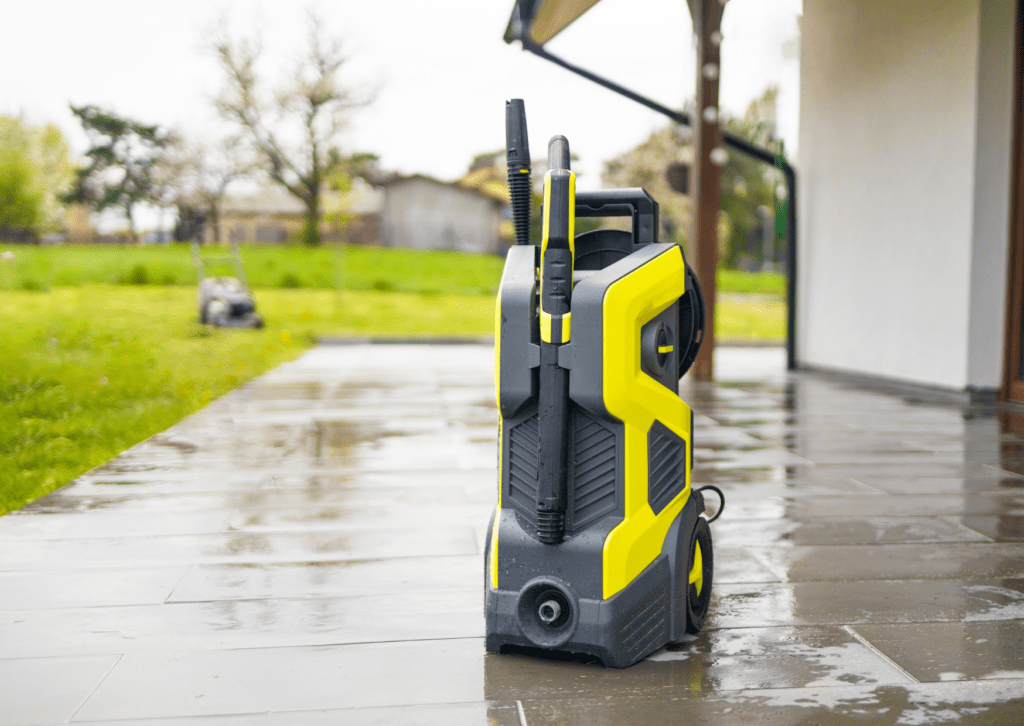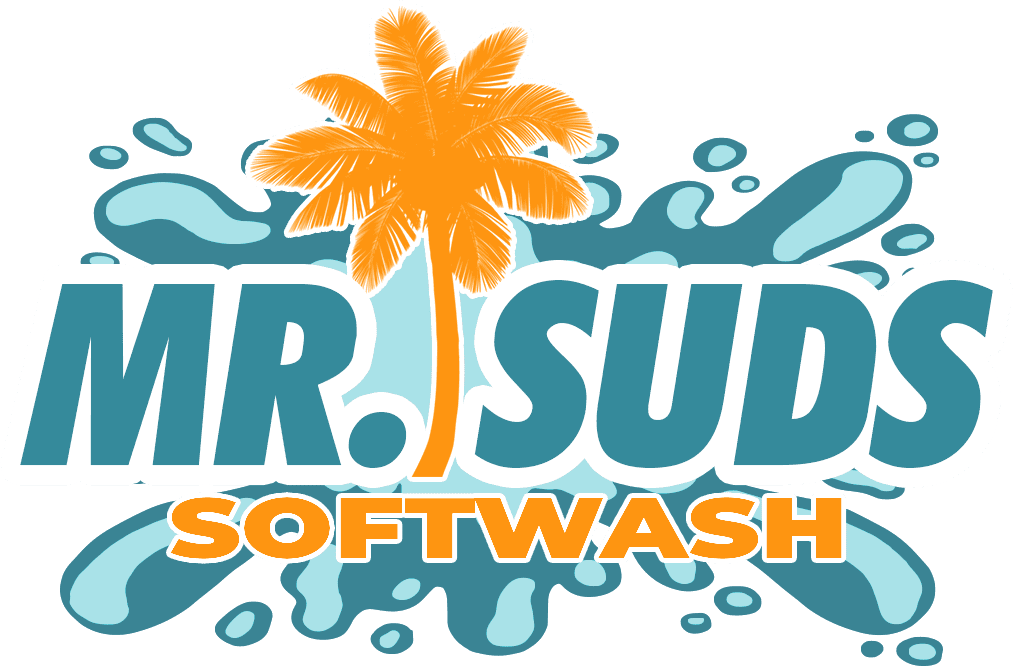
When it comes to maintaining our home’s exterior, we often face challenges in keeping delicate surfaces clean without causing damage. Soft washing provides an effective solution using advanced soft wash systems to remove dirt, mold, and other contaminants while preserving the integrity of surfaces like roofs, siding, and stucco. At Mr. Suds Softwash, we understand the importance of using the best equipment and methods to achieve outstanding results for residential cleaning. In this article, we’ll dive into what makes soft washing equipment the best choice for residential cleaning.
What Is Soft Washing and How Does It Work?

Soft washing is a cleaning method that uses low-pressure systems combined with specialized cleaning solutions to safely and effectively clean various exterior surfaces. Unlike traditional high-pressure washing, which can damage delicate materials, soft washing focuses on treating the surface with a gentle approach. This makes it ideal for surfaces like fences, decks, and stucco, where excessive pressure could lead to cracks or other damage.
The process works by applying cleaning solutions to break down contaminants such as algae, moss, mildew, and dirt. After the solution is allowed to work its magic, it is rinsed off with water at low pressure, leaving the surface clean and restored.
Why Is Soft Washing Equipment Essential for Residential Cleaning?

Investing in the right soft washing equipment is essential for achieving the best results. This equipment is specifically designed to handle delicate materials, ensuring that surfaces like roofs, siding, and stucco remain unharmed during the cleaning process.
Moreover, soft washing helps protect your environment by using minimal water and eco-friendly cleaning solutions that pose less risk to plants and wildlife. Proper equipment ensures you can tackle tough contaminants like mold, algae, and dirt without overusing resources or causing unnecessary harm.
What Are the Key Components of a Soft Wash System?

A complete soft wash system consists of several key components that work together to deliver exceptional cleaning results. Here are the main elements:
- Pump: The pump is the heart of the system, responsible for delivering the cleaning solution to the surface. Soft wash pumps are designed to operate at low pressure to protect delicate surfaces.
- Hoses: Durable hoses capable of withstanding the cleaning solution and low pressure are essential for maneuverability and reliability.
- Soft Wash Nozzles: These nozzles disperse the cleaning solution evenly, ensuring thorough coverage without damaging the surface.
- Tank for Specialized Cleaning Solutions: A dedicated tank holds the cleaning solution, which is customized to remove contaminants like mold and moss effectively.
- Rinse System: This component ensures that surfaces are rinsed clean of both contaminants and cleaning solutions, leaving no residue behind.
How Does Soft Washing Compare to High-Pressure Washing?

One common question is how soft washing differs from high-pressure washing. The answer lies in the approach and application.
- Soft Washing: Uses low-pressure and specialized cleaning solutions to break down contaminants, making it suitable for delicate materials. It’s ideal for roofs, siding, and other surfaces that require gentle care.
- High-Pressure Washing: Relies on forceful water streams to remove dirt but carries the risk of damaging softer surfaces, chipping paint, or loosening shingles.
For residential cleaning, soft washing is the safer and more effective option when maintaining the longevity of your home’s exterior.
Which Specialized Cleaning Solutions Are Used in Soft Washing?

Soft washing relies heavily on specialized cleaning solutions tailored to break down contaminants like algae, mildew, and mold. These solutions are not only powerful but also environmentally friendly, reducing the impact on your surroundings.
The cleaning solutions used in soft washing systems often contain biodegradable agents that work against tough contaminants while being safe for plants, pets, and people. This balance between strength and safety makes them a vital component of any soft washing setup.
What Surfaces Can Be Cleaned Using Soft Washing Equipment?

Soft washing is versatile and can be used to clean a variety of surfaces effectively. Here are some examples:
- Roofs: Safely removes moss, mildew, and algae without damaging shingles.
- Siding: Ideal for materials like vinyl, wood, and stucco, as it prevents cracks or discoloration.
- Fences and Decks: Gently cleans dirt and contaminants while preserving the structural integrity.
- Stucco: Protects this fragile material by avoiding the damage caused by high-pressure washing.
Whether it’s your home’s exterior walls or outdoor furniture, soft washing is the ideal cleaning solution.
How Does Soft Washing Protect the Environment?

One of the standout benefits of soft washing is its eco-friendly nature. By using less water and biodegradable cleaning solutions, soft washing minimizes its environmental footprint. Unlike high-pressure systems, which often waste large amounts of water, soft washing delivers effective results with fewer resources.
Additionally, the solutions used in soft washing systems are designed to break down naturally, posing minimal risk to nearby plants, wildlife, and soil. This makes it a great choice for homeowners who want to keep their properties clean while being mindful of the environment.
What Are the Risks of Using the Wrong Soft Washing Equipment?

Using improper equipment can lead to several problems, including:
- Damage to Delicate Materials: Surfaces like stucco, siding, and decks can crack or deteriorate when exposed to excessive pressure.
- Ineffective Cleaning: Without the right soft washing equipment, contaminants like moss and algae may not be removed entirely.
- Environmental Harm: Overuse of water and harsh chemicals can negatively affect the surrounding area.
To avoid these issues, it’s crucial to invest in high-quality equipment designed for soft washing purposes.
How Can You Choose the Best Soft Washing Equipment?

Selecting the right equipment depends on several factors:
- Compatibility: Ensure the equipment works with your existing soft wash system.
- Durability: Look for products made from high-quality materials to withstand regular use.
- Effectiveness: Choose tools that can remove tough contaminants like dirt, mold, and algae without damaging surfaces.
- Price: Balance cost with quality to get the best value for your investment.
Soft washing services like Mr. Suds Softwash provide reliable and high-performing equipment that meets all these criteria.
Why Choose Soft Washing Equipment from Mr. Suds Softwash?

If you’re looking for top-quality soft washing equipment, Mr. Suds Softwash has you covered. Their products are designed for optimal performance, ensuring you can clean delicate materials like stucco, siding, and roofs safely and effectively. Whether you’re a homeowner or professional, their equipment offers durability, eco-friendly solutions, and excellent value for your investment. Visit their website to explore their wide range of options and take your residential cleaning to the next level.
Soft washing is more than just a cleaning method—it’s a way to protect and enhance your home’s beauty. By using the right soft washing equipment, we can ensure our surfaces stay clean, our environment stays safe, and our homes look their best. Whether it’s removing tough mold, dirt, or algae, soft washing offers an efficient and gentle solution for all your residential cleaning needs.

